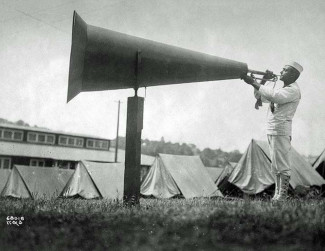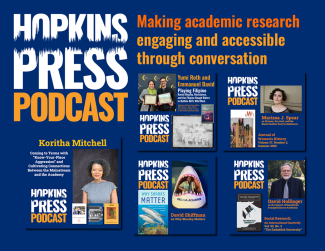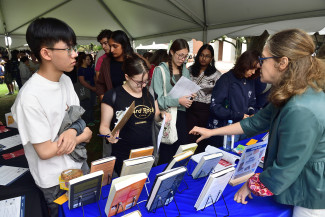Johns Hopkins UniversityEst. 1876
America’s First Research University
Make Your Voice Heard in 2017's Town Square: Tips to Effectively Participate in the Twitter Conversation
Johns Hopkins University Press is excited to continue participating in the AAUP's #UPWeek. Today JHUP's Editorial Director, Greg Britton, writes about the most effective use of Twitter in the scholarly sphere #ReadUP.
Few social media platforms have had the moment Twitter seems to be having. It has become our town square, street corner, or Roman forum. For those new to Twitter, it can seem cacophonous, a schizophrenic news crawl. Everyone declaims. With a sitting president so willing to use it in the early morning hours to issue offhanded comments and policy pronouncements, watching Twitter has become essential.
For scholars, however, Twitter offers a unique chance to connect with your peers, other readers, and a larger public audience. It can be a conduit to work being done in your field and an informal way to communicate with each other. As an acquisitions editor, I look at Twitter as one of the ways I stay connected with hundreds of scholars. It is also a place I watch for potential authors. In addition to other qualities, I know that writers who are engaged with their communities, ones who have a platform for promoting their ideas, will succeed. As a publisher, I want a partner who can help deliver impact for a book, and I often spot those authors on social media.
I also participate in the conversation by sharing interesting things I am reading, by talking about conferences I attend, or even by announcing new books we publish. Authors sometimes say to me, I want an editor who participates in my field, and I see from Twitter that you are. It’s how I lay out the bait. Twitter can be a stream I go fishing in.
Some academic disciplines are more active than others on Twitter, but all have some presence there. I encourage all authors to develop a place on the platform. If you’re new to social media or just need to tune up your performance, here are my tips for how to participate effectively:
Show up. If, as they say, eighty percent of life is just showing up, the same is true of social media. It’s one thing to lurk on Twitter, monitoring what others say, but it is another to participate. Think of Twitter as a cocktail party. It will be much more interesting if you find the right conversation and participate. Standing in the corner really gets you nowhere. As you build your network of followers, consider posting five or more times a day in the beginning. You’ll soon find a sustainable level, but I think it would be difficult for most scholars to over-post. This can be another time commitment, but use it as a quick writing or study break.
Tell your story. Write about your work. If you are working on an article or research project, write about it. Read an interesting journal article? Write about it. Have a great in-class discussion with students? Tell your network. Struggling with a key chapter on your next book? Ask for advice from your network. The key here is to start conversations within your field. This will attract colleagues internationally.
Keep it tight. As you build your network and online persona, try to stay focused. If you are a classicist, for example, consider writing only about issues of interest to other classicists. If you are a bioethicist, think about how you can bring your perspective to news stories of interest to the bioethics community. This may mean you avoid posting pictures of your cat or descriptions of what you’re making for dinner. Instead, report on your work. As you build an audience, you can add other areas to your repertoire, but remember the trick is to attract followers who recognize and appreciate your expertise.
Have a personality. Nothing drives impact more than a social media presence that has a personality. If you are witty, be witty. If you are indignant, be indignant. I recommend that scholars start by finding contemporary events in your field that you have something to say about, and say them. Consider starting at your annual academic conference. Tweet outward to the world of scholars unable to attend. Be a reporter for them.
Picture this. Even on Twitter, images drive impact. Add pictures whenever you can. These can be about the event or topic you’re talking about. Historical images always seem to attract attention. Use them liberally.
Engage with the world. The point of all this is to engage with your community and beyond. As a scholar, you know things that others do not. Don’t be afraid to be a public intellectual. Share information that you think others will want to know. Having a generous spirit will rarely fail you.
Mention your book. Increasingly, search engines collecting altmetrics look to social media for the metadata about your work. Don’t be afraid to post a link to a new review of your work, its mention in a news story, or even the publisher’s own webpage for your work. Think of it less as self-promotion than as a service for those who want to know about your work.
Publishers and their authors want the same thing for a book (or journal, report, or digital humanities project)—and that’s impact. This can mean reaching thousands of readers or it could mean reaching precisely the right single reader. Either way, your work has to be discovered. That’s the point of publishing, isn’t it?
Greg Britton is editorial director at Johns Hopkins University Press and a contributor to What Editors Do: The Art, Craft, and Business of Book Editing (Chicago, 2017). You can follow him on Twitter at @gmbritton

